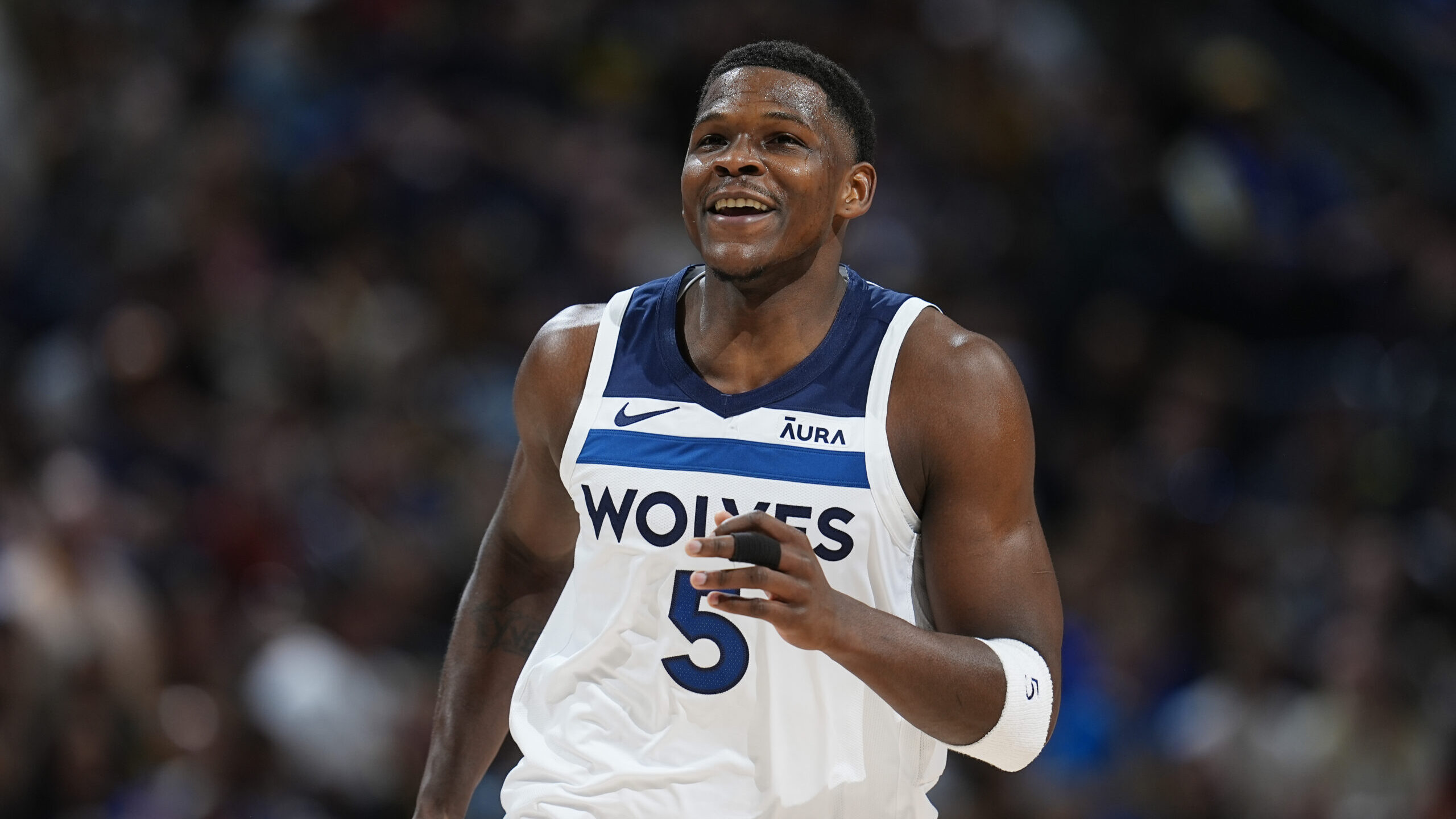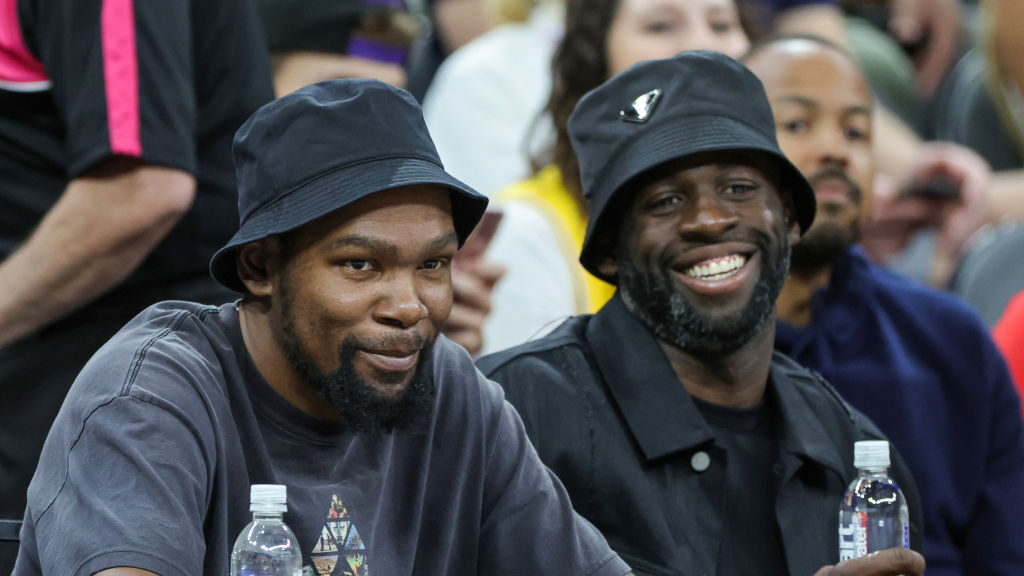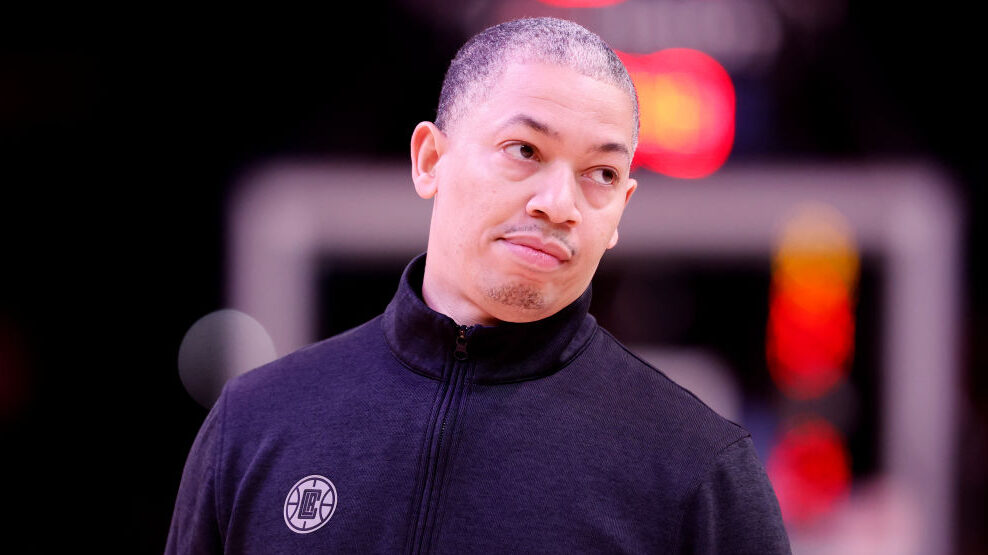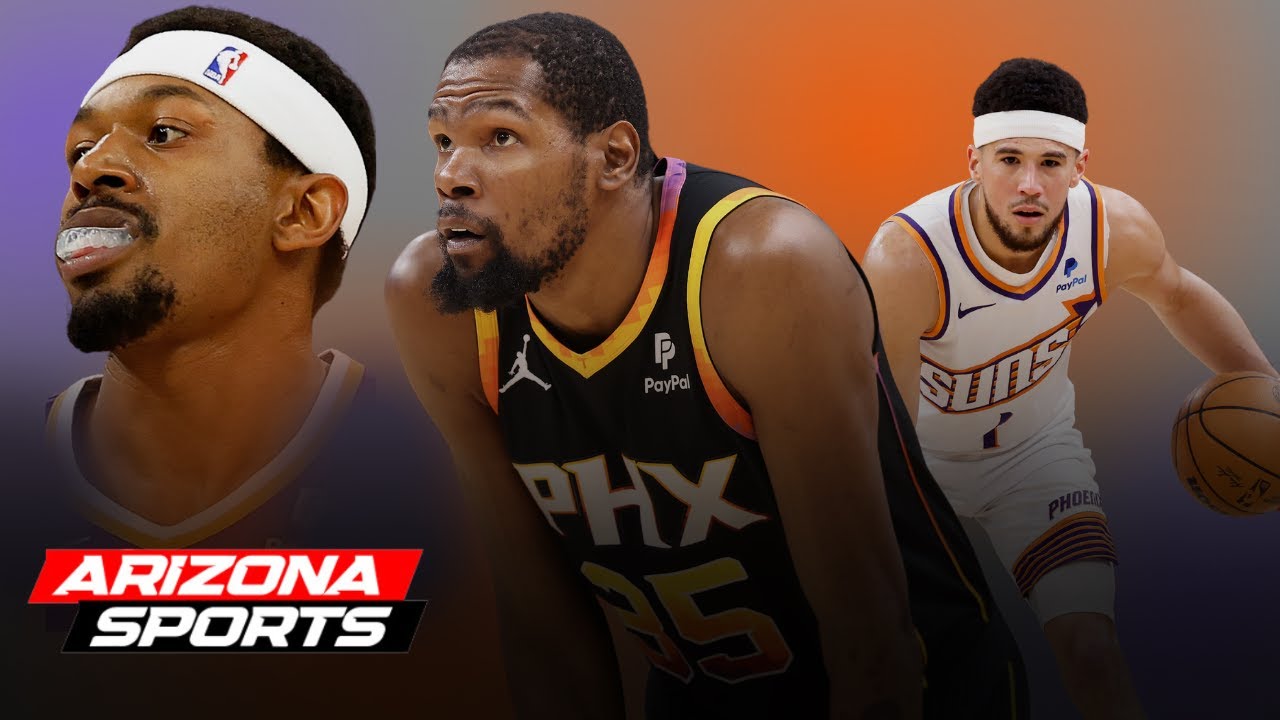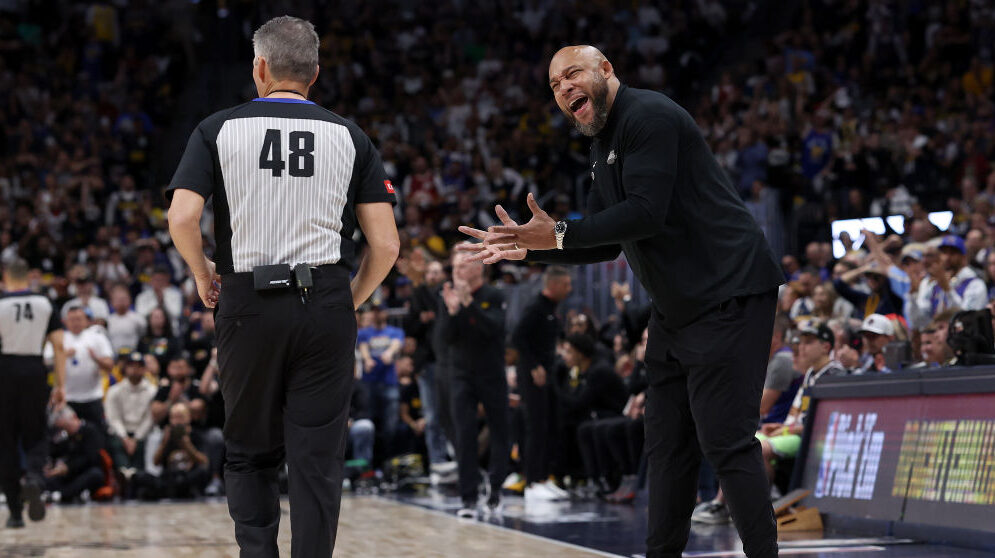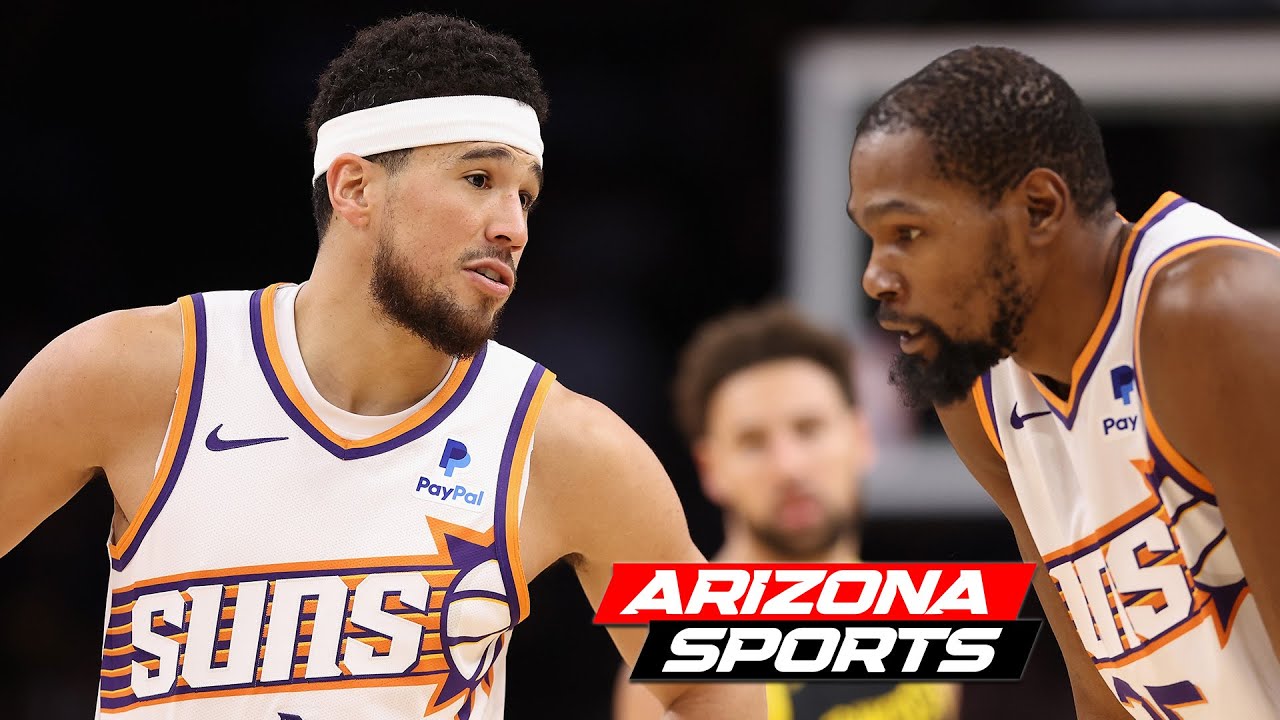For the Suns, the Kyrie Irving-Isaiah Thomas trade provides an ironic twist
Aug 22, 2017, 5:31 PM
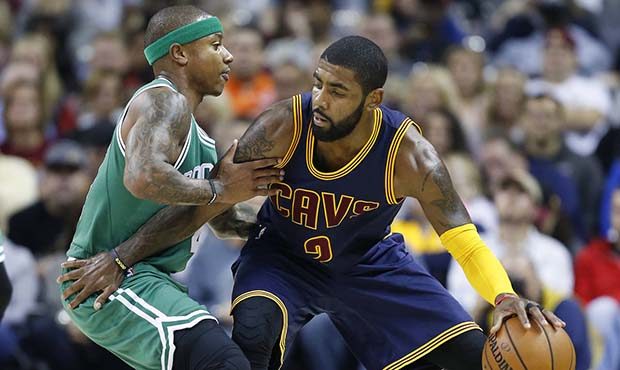
(AP Photo/Ron Schwane, File)
(AP Photo/Ron Schwane, File)
Irony has its way in the drama-filled NBA.
It’s this time for the Phoenix Suns that a past trade that haunted them appears to have played out to its finale.
Out of the blue on Tuesday, it was the Boston Celtics trading former Sun Isaiah Thomas in a package to acquire Kyrie Irving from the Cleveland Cavaliers. Argue how it helps or hurts either Eastern Conference contender as you will, but the deal holds a little weight locally in Phoenix.
Celtics are sending Thomas, Crowder, Ante Zizic and Brooklyn's 2018 first-round pick for Kyrie Irving, league sources tell The Vertical. https://t.co/gdaT9UjVGl
— Shams Charania (@ShamsCharania) August 22, 2017
It’s an assumption-heavy, what-if exercise to say, “had the Suns retained Isaiah Thomas, perhaps they would have used him to land Irving.” That’s not what I’m saying. But it’s the history of Phoenix acquiring Thomas and then trading him to Boston for a late 2016 first-round pick (coincidentally owed by Cleveland) and Marcus Thornton that’s interesting to reminisce about after hearing Tuesday’s news.
Suns fans and even general manager Ryan McDonough can already judge how poorly the trade of Thomas to Boston in 2015 went.
“In retrospect, we should have carried him into the summer. If there’s one (decision) that stands out, if I could get a mulligan, that’d be it,” McDonough said a year after the trade.
On the other hand, the criticized sign-and-trade to add Thomas gave the Suns a chance to make a move in the exact scenario that went down between the Celtics and the Cavs on Tuesday.
Let’s go back to the Suns’ acquisition of Thomas first.
Phoenix traded second-round pick Alex Oriakhi to the Sacramento Kings in July 2014 and acquired Thomas in a sign-and-trade — aside from Oriakhi, the deal more notably gave the Kings a trade exception to play with. Thomas’ front-loaded contract paid him a reasonable $7.2 million in 2014-15, $6.9 million in 2015-16 and $6.6 million last season. It will pay him $6.3 million in 2017-18 before he becomes a free agent.
At the time of the deal, the Suns were criticized considering Goran Dragic and soon-to-be-free agent Eric Bledsoe were already on the roster at point guard. The Suns played off potential injuries as the reasoning for a triple-headed point guard lineup. They said it’d work. On the court, it did to some extent — player emotions aside.
But really, adding Thomas was a form of asset acquisition. Even coming off a 48-win season, Phoenix had money to spend and found incredible value in Thomas.
No matter whether the Suns kept all three point guards, needed to deal one or lost one in free agency, the reality was the addition gave them options.
ESPN’s Kevin Pelton hit the nail on the head while grading the odd sign-and-trade that summer.
Free agents are expected to contribute immediately, and they generally don’t carry the same long-term upside as draft picks. However, for teams building their rosters, it might be more important to get the better player and figure out another move later.
That seems to be part of the thinking behind the Suns’ pursuit of Thomas. Independent of need, Thomas is one of the better values on the market — a 25-year-old point guard who posted nearly 10 wins above replacement player last season.
…
If the Suns can manage to parlay one of their other point guards into an important piece at a position of need, odds are they’ll end up with a stronger roster than they would have by simply signing a free agent at a different spot.
At the end of the day, signing Thomas upset Dragic and led to the Suns dealing both point guards just a half-season into the experiment (remember that the Dragic trade, deal to acquire Brandon Knight and trade of Thomas were all separate).
Here’s where Phoenix erred: Instead of seeing Thomas as replacement insurance, the front office should have also viewed him equally as Bledsoe and Dragic: as a player to keep until he demanded out and as a player who would need to command a ton of value in return.
As a trade chip in a chase for a star.
When Thomas rose to All-Star prominence with the Celtics over the past two seasons, that became all-the-more obvious.
Thomas’ role in helping the Celtics acquiring Irving is maybe ironic because it appeared the Suns, by using Bledsoe, were considering one of the most likely trade partner for the Cavs just a few weeks ago — and because they were reportedly interested in acquiring a score-first, defense-lacking point guard and once traded one for so little.
Wow!
— Eric Bledsoe (@EBled2) August 22, 2017
“Wow!” about sums it up.


